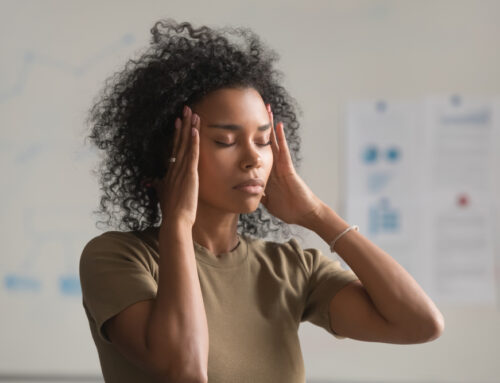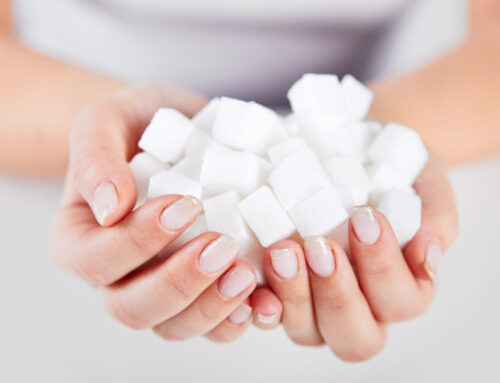By: Dr. Keara Taylor, ND
When it comes to addressing and optimizing mental health, it is vitally important to take a holistic approach, which may include looking at and addressing your hormonal health since hormones and mental health are intrinsically linked.
As we know, PMS or premenstrual syndrome, is composed of both physical and psychological symptoms, which include low mood, anxiety, mood swings, social withdrawal etc. that occur in the two week period prior to menstrual bleeding and affect daily functioning. PMDD or premenstrual dysmorphic disorder is defined in the DSM-5 and includes severe mood and physical symptoms (1). We see an increase in low mood and anxiety in peri- and post-menopausal women (2). All of this shows us that mood changes can be linked to shifts in hormones, such as a decline in estrogen, and sometimes a rise in progesterone or progestogens, which can then affect neurotransmitters like serotonin, GABA, and dopamine(3).
A good way to determine whether hormones are affecting your mood symptoms is to track your symptoms along with your cycle. There are many free apps out there that make this very easy. If you are undergoing a hormonal transition, for example, pregnancy, post -partum, or perimenopause, then it may be worthwhile to work with a health care practitioner who can help you determine whether your hormones are having an effect on your mental health. The importance of a proper diagnosis cannot be stressed enough to ensure that you get the proper care and treatment that you need (4).
Hormone balance is achieved through a comprehensive approach that may include dietary and lifestyle changes as well as the addition of nutrients, herbs or bioidentical hormones on an individualized basis. As a baseline, there are some general lifestyle practices that we know have a positive effect on our hormonal health and mood:
- Aim for 7-8 hours of sleep per night to ensure your circadian rhythm is optimized. This is the master clock that is set in the brain from signals of light and dark in your environment, and it has an effect on hormonal and metabolic homeostasis in the body (5). The main hormones here that we want in balance are melatonin and cortisol, which then impact many of our other hormones. Some tips for a good night’s sleep include sleeping in a dark, cool room, and limiting your exposure to screens for at least 90 minutes before bed.
- Manage the stress in your life by setting aside 10 minute per day for deep rest or relaxation. We know that stress affects our hormones and if we do not take actions to manage the stress in our lives, it can lead to imbalances in our sex hormones like estrogen and progesterone, thyroid function, insulin sensitivity, etc. (6). It doesn’t have to be complicated or take too much time, but even spending 10 minutes going for a walk outside, having a hot bath, breathing deep into your belly, or following a guided meditation can help you to reduce the effects of daily stress on your body.
There are many great evidence-based nutrients and herbs that can help support hormonal
balance and mood. I always recommend working with a practitioner to determine which supplements will be most effective and safe for your unique health condition. Some of these include vitamin D, B6, calcium, magnesium, Vitex and Black cohosh (1).
References:
- Rapkin A. A review of treatment of premenstrual syndrome and premenstrual dysphoric disorder. Psychoneuroendocrinology. 2003 Aug;28 Suppl 3:39–53.
- Gracia CR, Freeman EW. Onset of the Menopause Transition: The Earliest Signs and Symptoms. Obstet Gynecol Clin North Am. 2018 Dec;45(4):585–97.
- Hofmeister S, Bodden S. Premenstrual Syndrome and Premenstrual Dysphoric Disorder. Am Fam Physician. 2016 Aug 1;94(3):236–40.
- Hantsoo L, Epperson CN. Anxiety Disorders Among Women: A Female Lifespan Approach. Focus Am Psychiatr Publ. 2017;15(2):162–72.
- Gnocchi D, Bruscalupi G. Circadian Rhythms and Hormonal Homeostasis: Pathophysiological Implications. Biology [Internet]. 2017 Feb 4 [cited 2020 Jan 16];6(1). Available from: https://www.ncbi.nlm.nih.gov/pmc/articles/PMC5372003/
- Ranabir S, Reetu K. Stress and hormones. Indian J Endocrinol Metab. 2011;15(1):18–22.






